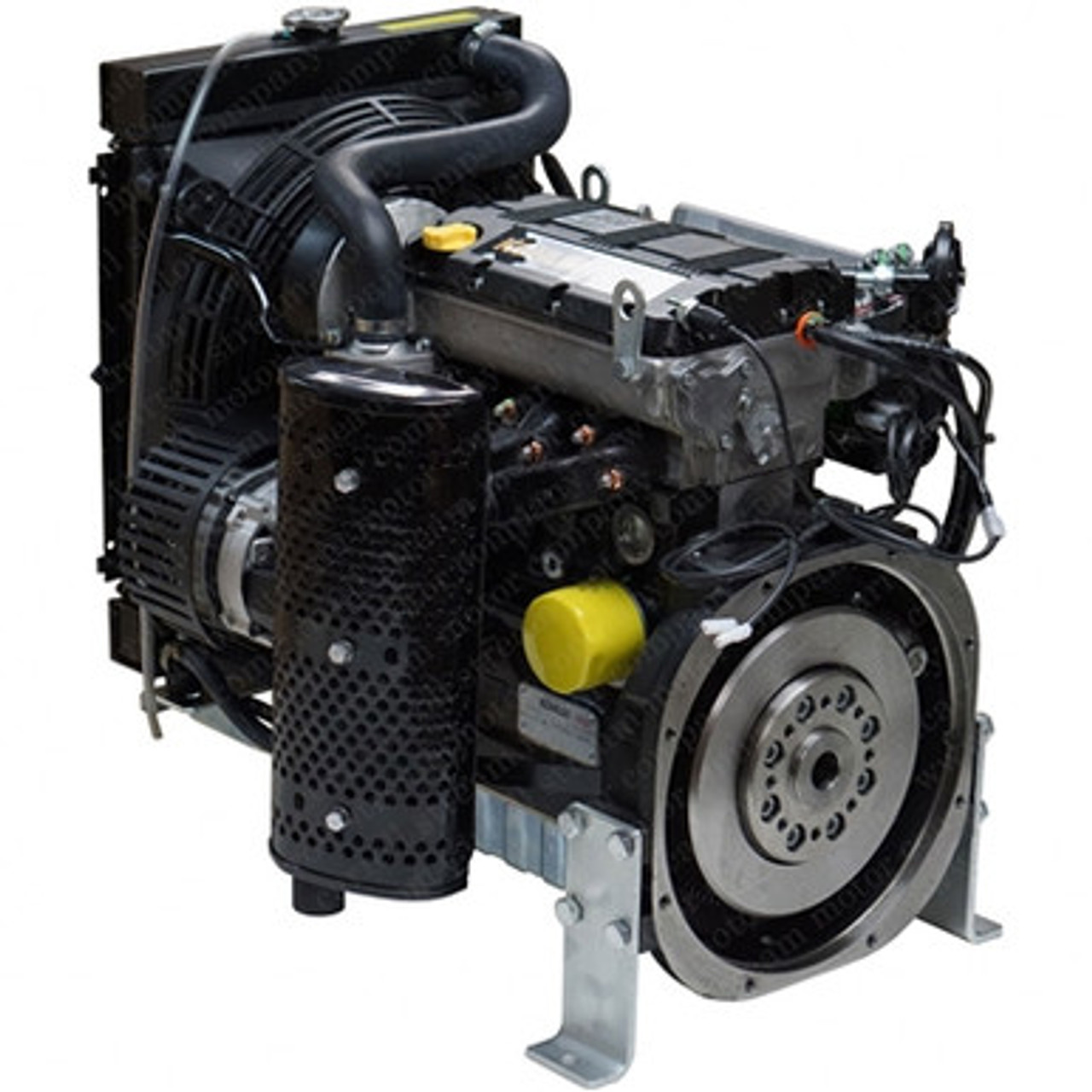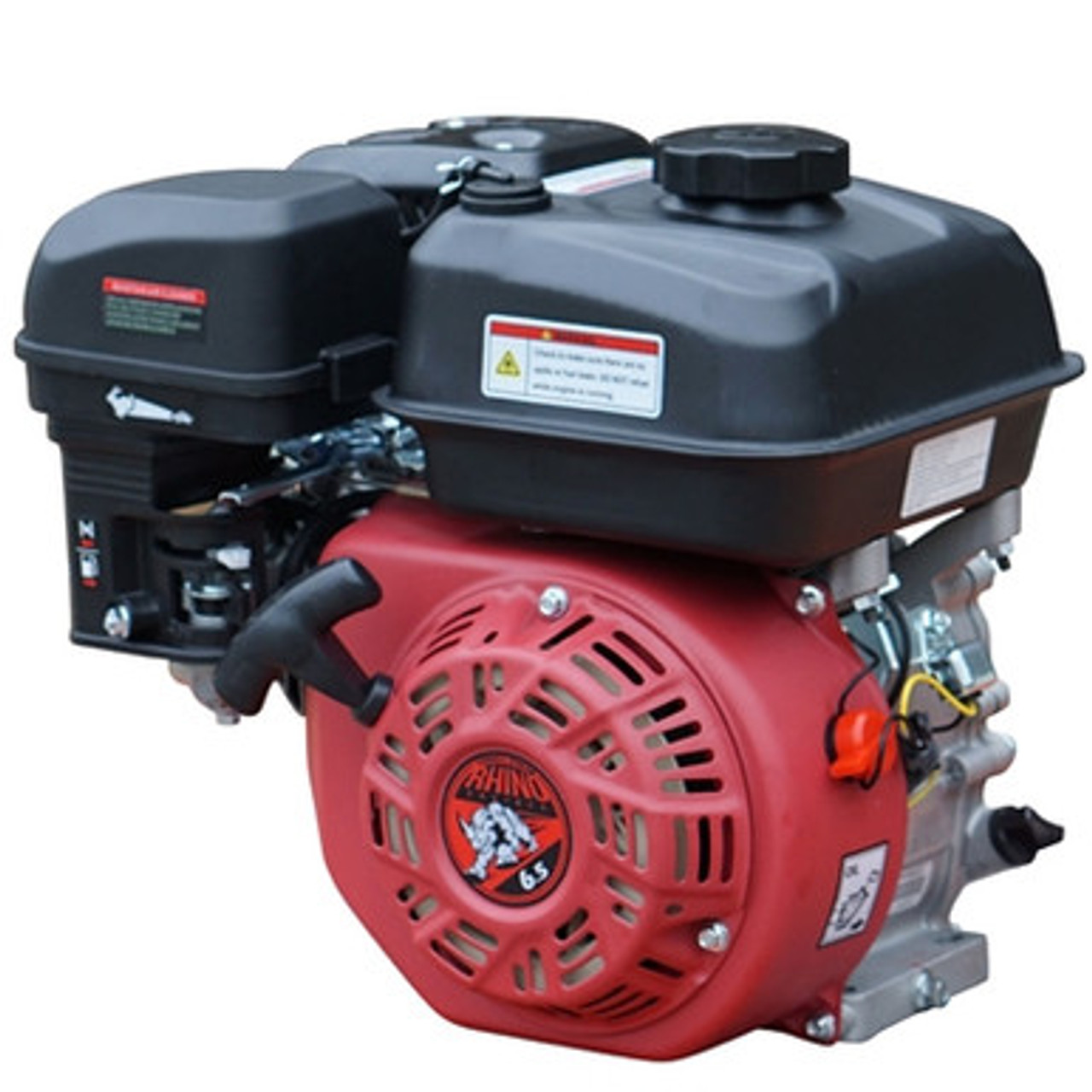Choosing the Right Lawn Mower Engine: Diesel vs. Gas
23rd Jun 2024
When making a decision between a diesel and gas lawn mower engine, it is crucial to take into account several factors including the initial cost, fuel efficiency, durability, and overall advantages and disadvantages. This comprehensive guide explores these aspects in detail, offering valuable insights to assist you in making a well-informed choice.

Initial Costs
Diesel lawn mowers generally entail a greater initial expense in comparison to their gasoline counterparts. This augmented cost primarily stems from the need for sturdy construction and sophisticated technology in diesel engine manufacturing. However, for individuals or businesses engaged in commercial use or possessing extensive properties, this higher upfront investment can prove to be beneficial. The superior resilience and extended lifespan of diesel engines frequently validate the initial expenditure, rendering them a financially prudent option in the long run, particularly for demanding tasks.
Gasoline-fueled lawn mowers are typically more economical and convenient for the typical homeowner. With a diverse selection of choices offered at different price ranges, gas mowers accommodate various budgets and requirements. This affordability contributes to their popularity among residential users who may not necessitate the long-lasting resilience of a diesel engine. Furthermore, the lower initial expense enables homeowners to upgrade or replace their mowers more frequently without enduring a substantial financial strain.
Fuel Efficiency
Diesel engines are renowned for their exceptional fuel efficiency, making them a standout feature. These engines are specifically engineered to offer extended run times per gallon of fuel, making them highly beneficial for individuals with expansive properties or those who require prolonged mowing sessions. Although diesel fuel is typically pricier than gasoline, the increased fuel efficiency compensates for the higher cost in the long run. Consequently, diesel mowers present a cost-effective choice for users who prioritize fuel economy and extended operating durations.
Gasoline engines, despite being generally less efficient in terms of fuel consumption compared to diesel engines, provide various benefits. Gasoline is usually more affordable and easily accessible than diesel, which can be highly convenient for numerous users. However, gas engines tend to consume more fuel, resulting in shorter running times per gallon. In situations where smaller lawns or occasional use are involved, the disparity in fuel efficiency may not have a significant impact, making gas mowers a practical option for numerous homeowners.

Durability and Longevity
Diesel engines have gained a reputation for their exceptional durability and extended lifespan. Designed to endure demanding usage, they are particularly suitable for heavy-duty tasks and frequent mowing. In contrast to gas engines, diesel engines necessitate less frequent maintenance. However, when maintenance is required, it can be more intricate and costly. For commercial landscapers or individuals with expansive properties, the dependability and longevity of diesel engines can lead to reduced long-term maintenance expenses and fewer interruptions caused by equipment malfunctions.
Gasoline engines provide sufficient durability for typical residential usage. Although they tend to have a shorter lifespan than diesel engines, they are simpler and more affordable to repair and upkeep. Consistent maintenance is essential to prolong the lifespan of gasoline engines, but this upkeep is usually uncomplicated and less expensive. For homeowners with smaller yards, gas-powered lawn mowers offer a combination of durability and ease of maintenance, making them a sensible and cost-effective option.
Pros & Cons
Key pros of diesel engines include:
1. Enhanced fuel efficiency results in extended operating periods and reduced fuel expenses in the long term.
2. Increased torque enhances their effectiveness for demanding mowing jobs and dense, resilient grass.
3. Extended longevity and exceptional robustness decrease the necessity for frequent replacements.
4. Reduced frequency of maintenance can lead to decreased downtime and diminished long-term maintenance expenses.
Key cons of diesel engines include:
1. Increased initial acquisition expense, which may represent a substantial financial commitment for certain users.
2. Diesel fuel tends to be pricier and may not be as readily available in certain regions.
3. Operation is typically heavier and louder, potentially leading to discomfort during prolonged use.
4. Repairs are more intricate and costly, necessitating expertise and specialized components.
Key pros of gas engines include:
1. The initial cost is reduced, making them a more economical choice for the average homeowner.
2. Fuel costs are lower and more easily accessible, offering added convenience.
3. They operate quietly and smoothly, enhancing the overall comfort during mowing.
4. Maintenance and repair are simpler and more cost-effective, thanks to the wide availability of parts and services.
Key cons of gas engines include:
1. Reduced fuel efficiency results in increased refueling frequency and higher fuel expenses in the long run.
2. Shorter lifespan in comparison to diesel engines could lead to more frequent replacements being necessary.
3. Lower power output may not be adequate for heavy-duty work or large areas.
4. Regular maintenance is essential to maintain peak performance and extend the lifespan of the equipment.
To summarize, the decision between a diesel and gas lawn mower engine depends on several factors such as budget, lawn size, frequency of use, and specific mowing needs. Diesel engines, known for their durability, fuel efficiency, and power, are ideal for large properties and commercial purposes. Although they require a higher initial investment, they offer long-term cost savings and reliability. Conversely, gas engines are a more cost-effective and convenient choice for residential use, with simpler maintenance and quieter operation. By carefully considering these factors, you can select the engine type that suits your needs best and ensures a well-kept lawn.

